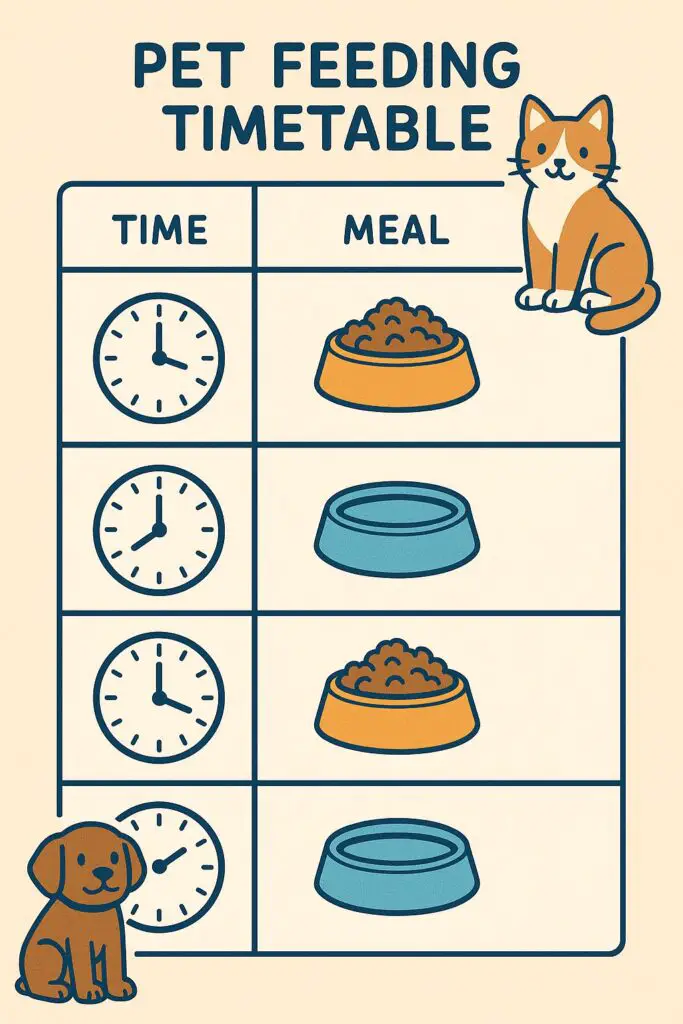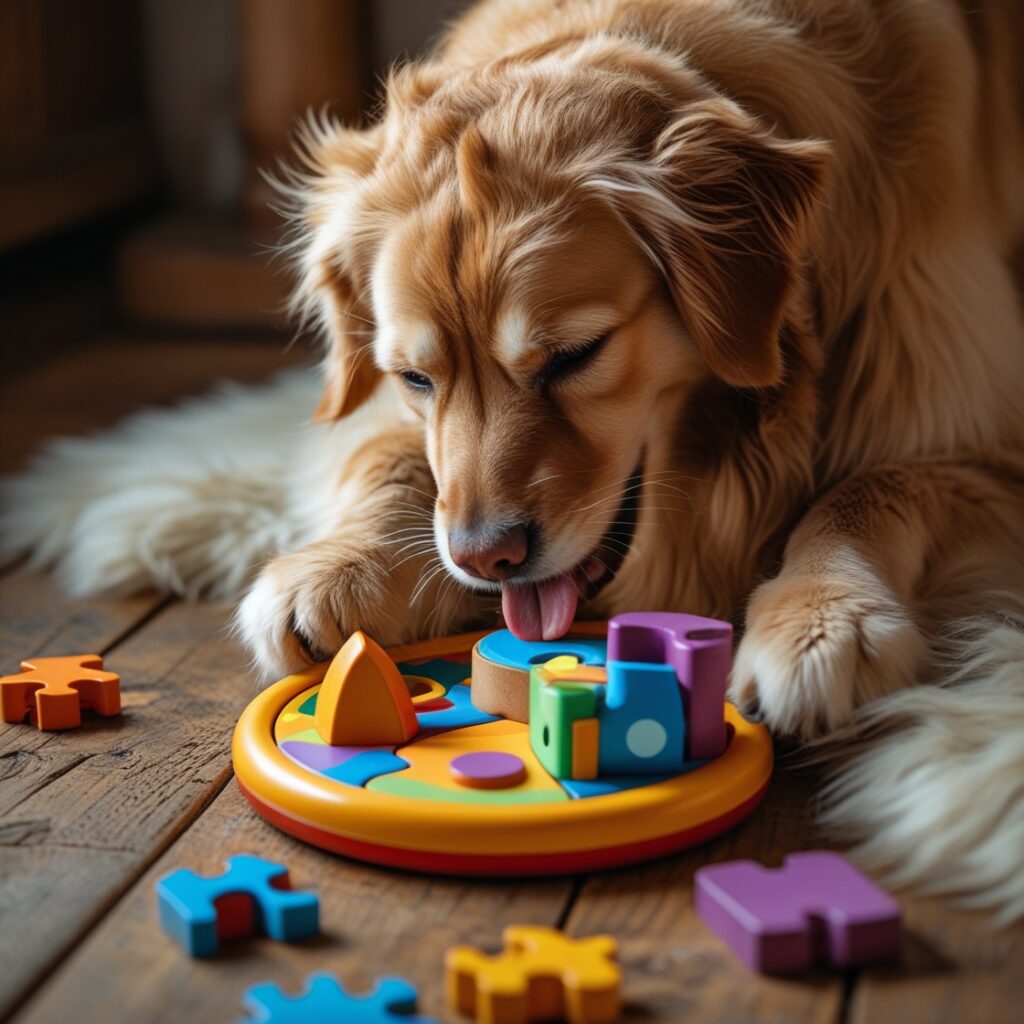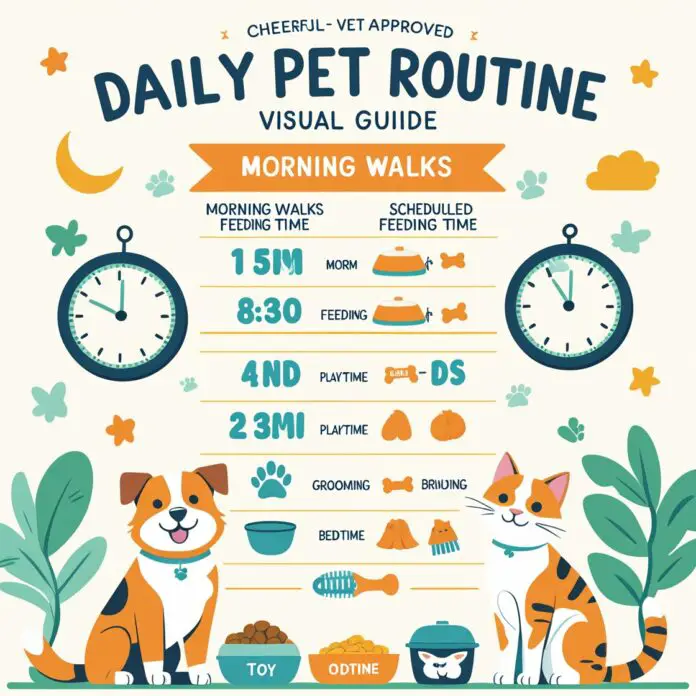Ensuring your pet’s health and happiness requires more than just love and affection; it involves establishing consistent daily routines that promote physical and mental well-being. Veterinarians emphasize the importance of structured habits to prevent health issues and enhance the quality of life for your furry companions. Whether you have a dog, cat, or smaller pet, implementing reliable routines is key to longevity and quality of life.
🐾 1. Consistent Feeding Schedule

A regular feeding routine is fundamental to your pet’s health. Feeding your pet at the same times each day helps regulate digestion and prevents overeating, which is especially important for breeds prone to obesity. Most vets recommend two meals per day for adult dogs and cats.
Incorporating portion control is also essential. Overfeeding can lead to weight gain, diabetes, and joint issues. For example, feeding a high-energy breed like a Border Collie requires careful calorie monitoring to match their activity level. Always consult your veterinarian to determine the right type, portion size, and timing based on your pet’s breed, age, and lifestyle.
Tip from vets: Use a measuring cup to maintain consistency. Consider timed feeders for busy schedules or pets that eat too quickly.
🏋️♂️ 2. Daily Exercise and Mental Stimulation
Physical activity is crucial for maintaining a healthy weight and preventing behavioral issues. Dogs benefit from structured walks, fetch games, or agility training. Cats, while more independent, still need enrichment through feather toys, climbing towers, or laser pointers.

Beyond physical movement, mental stimulation keeps your pet engaged and prevents anxiety or destructive behaviors. Puzzle feeders, scent games, or short training sessions can do wonders.
Vet Insight: A bored pet is often a misbehaving pet. One hour of exercise combined with at least 15 minutes of mental enrichment can significantly improve behavior and well-being.
💇 Regular Grooming and Hygiene
Grooming is more than aesthetics; it plays a vital role in health. Regular brushing removes dirt, reduces shedding, and helps detect issues like fleas or skin infections early. For long-haired breeds like Persian cats or Golden Retrievers, daily brushing may be needed.
Bathing frequency varies by species and breed. Dogs that spend time outdoors may need monthly baths, while indoor cats usually manage grooming themselves.

Don’t forget nail trims every 3–4 weeks, especially for indoor pets. Long nails can cause pain, joint stress, and even injury.
Pro Tip: Make grooming a bonding experience. Start young, reward frequently, and handle your pet gently to create a positive association.
👩⚕️ Scheduled Veterinary Check-Ups
Routine veterinary visits are essential for prevention and early diagnosis. At minimum, pets should visit the vet annually. Senior pets, or those with medical conditions, may require more frequent check-ins.

Vaccinations protect against common but serious illnesses like rabies, distemper, or feline leukemia. Bloodwork, dental exams, and weight checks also allow for a full health snapshot.
Vet Advice: Prevention is always cheaper than treatment. Don’t skip check-ups just because your pet “seems fine.”
🪑 Dental Care
Oral health is often neglected, yet poor dental hygiene can lead to infections, tooth loss, and even heart disease. Regular brushing is ideal—daily if possible—using pet-safe toothpaste.
Additionally, offer dental chews, water additives, or vet-approved toys designed to reduce plaque and tartar.
Did You Know? Over 80% of dogs over age 3 show signs of dental disease. An annual dental cleaning under anesthesia may be recommended by your vet.
🪜 Parasite Prevention
Fleas, ticks, heartworms, and intestinal parasites pose serious risks. Preventive care should be year-round, especially in warmer climates.
Options include topical treatments, oral medications, or collars. Your vet can recommend the best plan based on your region, pet species, and lifestyle.
Key Reminder: Consistency is critical. Missing just one dose can expose your pet to harmful parasites.
🧠 Mental Enrichment
Pets need stimulation beyond physical play. Mental exercises reduce anxiety and improve problem-solving. Try:

- Rotating toys weekly
- Teaching new commands
- Offering food puzzles or treat-dispensing toys
For small pets like rabbits or hamsters, rearranging their environment or providing tunnels and chew toys can also offer enrichment.
Vet-Backed Tip: Enrichment supports emotional health, preventing symptoms of depression or boredom.
🧑🏫 Socialization
Pets that are exposed to various sights, sounds, and experiences early on are typically more confident and adaptable. Begin socialization during the critical window (3–14 weeks for puppies).
Positive exposure to car rides, visitors, other animals, and different environments builds trust and reduces future fear-based behaviors.
Expert Note: Never force interaction. Let your pet explore new situations at their own pace with plenty of encouragement.
🏡 Safe and Comfortable Living Environment
A clean, organized space contributes to both physical and emotional safety. Provide your pet with their own bed, fresh water, and a dedicated area for food and play.
Be mindful of household dangers: electrical cords, poisonous plants, or accessible small objects. Regularly inspect and pet-proof your home.
Veterinary Tip: Make sure your pet’s living space mimics their natural instincts—safe hiding spots for cats or digging areas for dogs.
❤️ Love and Attention
Affection is not just nice to have—it’s essential. Pets are social beings. Daily cuddle time, play, and even conversation help reduce anxiety and boost emotional well-being.
Final Thought: The strongest medicine for your pet might just be your time and love.
By incorporating these vet-recommended habits into your pet’s daily routine, you’re actively preventing health issues, improving behavior, and building a strong, lasting bond.



